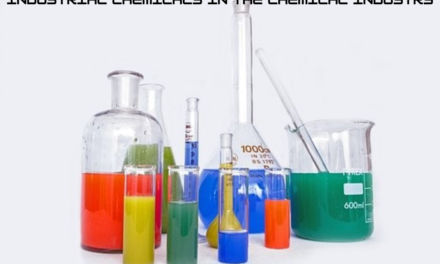The chemical industry is a sector of the economy focused on producing chemicals and related products through chemical processes. It involves the conversion of raw materials (such as oil, natural gas, minerals, and agricultural products) into a wide variety of products that are used across almost every other industry, including manufacturing, healthcare, agriculture, construction, and more.
The industry plays a crucial role in producing materials that are essential for everyday life, such as plastics, fertilizers, pharmaceuticals, paints, and cleaning products. It is also involved in creating and applying chemicals that improve efficiency, safety, and environmental sustainability in many other sectors.
Main Sectors of the Chemical Industry
- Basic Chemicals
- This sector involves the production of large volumes of chemicals used as building blocks for other chemicals. These chemicals are typically produced in bulk and include:
- Petrochemicals (derived from oil and natural gas), such as ethylene, propylene, and benzene
- Inorganic chemicals, including acids like sulfuric acid and nitric acid, and base chemicals like ammonia
- Gases like oxygen, nitrogen, and hydrogen, which are used in various industrial processes
- This sector involves the production of large volumes of chemicals used as building blocks for other chemicals. These chemicals are typically produced in bulk and include:
- Specialty Chemicals
- Specialty chemicals are produced in smaller quantities than basic chemicals and are typically used for specific applications or niche markets. This includes:
- Polymers (used in plastics and rubber products)
- Surfactants (used in detergents, soaps, and emulsifiers)
- Adhesives, sealants, and coatings (used in construction and manufacturing)
- Flavors, fragrances, and dyes
- Agricultural chemicals (such as pesticides and herbicides)
- Specialty chemicals are produced in smaller quantities than basic chemicals and are typically used for specific applications or niche markets. This includes:
- Agrochemicals
- This sector focuses on chemicals used in agriculture to improve crop yields and protect crops from pests and diseases. Agrochemicals include:
- Fertilizers (nitrogen, phosphorous, and potassium-based)
- Pesticides (herbicides, insecticides, fungicides)
- Plant growth regulators and soil conditioners
- This sector focuses on chemicals used in agriculture to improve crop yields and protect crops from pests and diseases. Agrochemicals include:
- Pharmaceuticals and Biotechnology
- The chemical industry plays a major role in the production of pharmaceuticals, including medicines, vaccines, and diagnostic agents. It also includes the development of biotech products like enzymes and biologics. This sector focuses on chemical processes for drug synthesis and the application of biotechnology in healthcare.
- Consumer Chemicals
- This sector produces chemicals for consumer use and includes products like:
- Soaps and detergents
- Personal care products (shampoos, cosmetics)
- Cleaning products
- Perfumes and fragrances
- This sector produces chemicals for consumer use and includes products like:
- Petrochemicals
- Petrochemicals are derived from refining crude oil and natural gas. They serve as raw materials for numerous other industries, including:
- Plastics (polyethylene, PVC, etc.)
- Synthetic fibers (nylon, polyester)
- Rubber (for tires and other products)
- Fuels (such as gasoline and diesel)
- Petrochemicals are derived from refining crude oil and natural gas. They serve as raw materials for numerous other industries, including:
- Fine Chemicals
- Fine chemicals are high-purity, small-volume chemicals used in specialized industrial applications. Examples include:
- Active pharmaceutical ingredients (APIs)
- Food additives
- Biochemical reagents
- Catalysts used in industrial processes
- Fine chemicals are high-purity, small-volume chemicals used in specialized industrial applications. Examples include:
- Industrial Gases
- This sector involves the production of gases used in industrial and medical applications, such as:
- Oxygen, Nitrogen, Argon
- Carbon dioxide (used in carbonation, refrigeration, and fire extinguishing systems)
- Hydrogen (used in refining, fuel cells, and chemical production)
- This sector involves the production of gases used in industrial and medical applications, such as:
- Renewable Chemicals and Bio-based Products
- With growing concerns about sustainability, this sector is focused on creating chemicals from renewable sources (like plants and algae), rather than fossil fuels. These products include:
- Bio-based plastics
- Biopolymers
- Biofuels (such as ethanol and biodiesel)
- With growing concerns about sustainability, this sector is focused on creating chemicals from renewable sources (like plants and algae), rather than fossil fuels. These products include:
- Recycling and Waste Management
- As environmental concerns grow, the chemical industry also plays a role in waste management, recycling, and the transformation of waste products into useful chemicals. This sector includes:
- Chemical recycling of plastics
- Waste-to-energy processes
- Water treatment chemicals
- As environmental concerns grow, the chemical industry also plays a role in waste management, recycling, and the transformation of waste products into useful chemicals. This sector includes:
Conclusion
The chemical industry is vast and diverse, with a range of sectors that provide essential materials and products for many other industries. It is deeply intertwined with global economic development, innovation, and sustainability efforts, as it impacts everything from the products we use daily to the materials required for infrastructure and advanced technologies.
Hashtags
#ChemicalSolutions #ChemicalProcessing #ChemicalIndustryNews #ChemicalEngineering #ChemicalInnovation #ChemicalSafetyMatters #ChemicalIndustryInsights #ChemicalIndustryTrends #ChemicalIndustryLeaders #ChemicalIndustryExperts #ChemicalIndustryUpdates #ChemicalIndustryGrowth #ChemicalIndustryChallenges #ChemicalIndustrySustainability #ChemicalIndustryFuture #ChemicalIndustryImpact #ChemicalIndustryAdvancements #ChemicalIndustryLeadership #ChemicalIndustryCollaboration #ChemicalIndustrySuccess

















